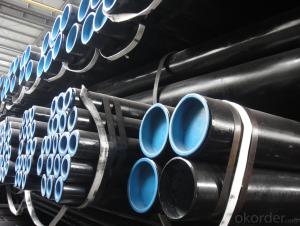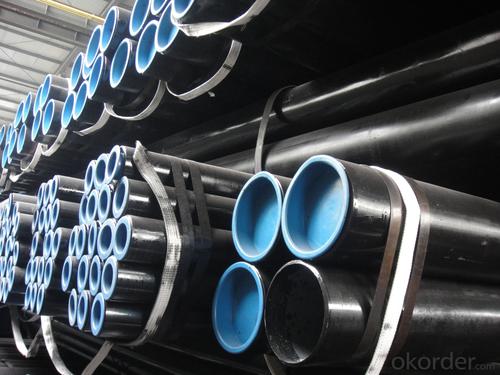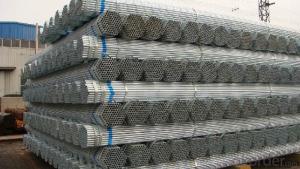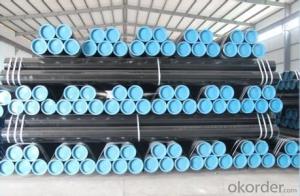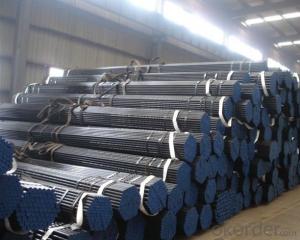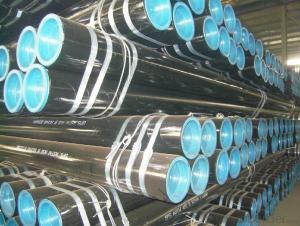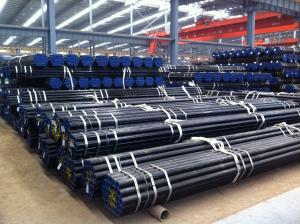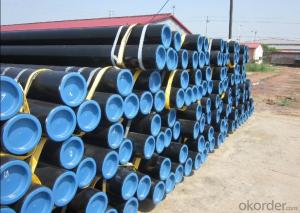1、Structure of Seamless Pipe ASTM A106/53 Description:
Seamless pipe is formed by drawing a solid billet over a piercing rod to create the hollow shell. As the manufacturing process does not include any welding, seamless pipes are perceived to be stronger and more reliable. Historically seamless pipe was regarded as withstanding pressure better than other types, and was often more easily available than welded pipe.
2、Main Features of the Seamless Pipe ASTM A106/53:
• High manufacturing accuracy
• High strength
• Small inertia resistance
• Strong heat dissipation ability
• Good visual effect
• Reasonable price
3、Seamless Pipe ASTM A106/53 Images:
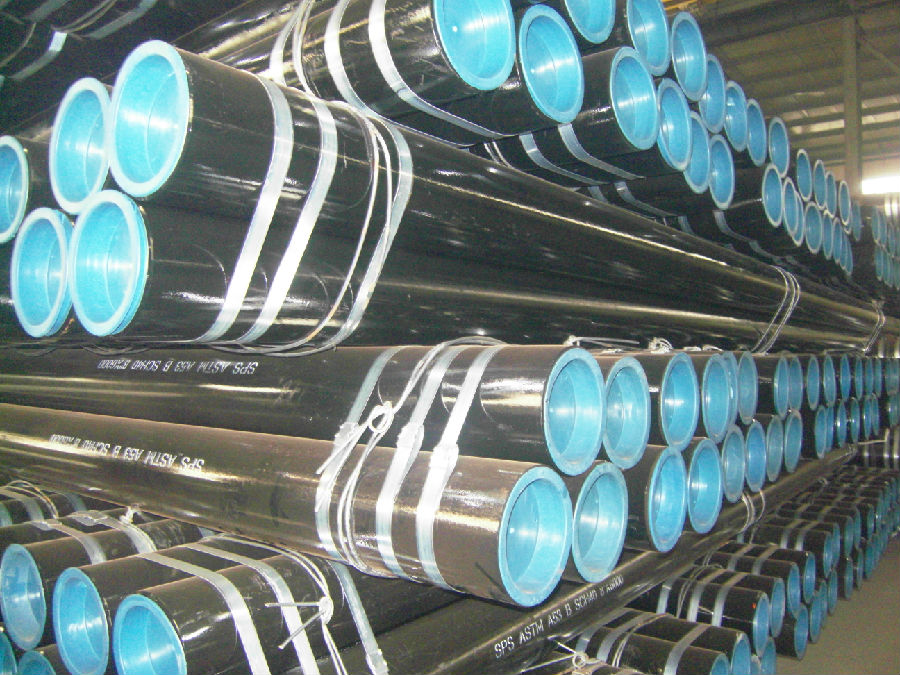
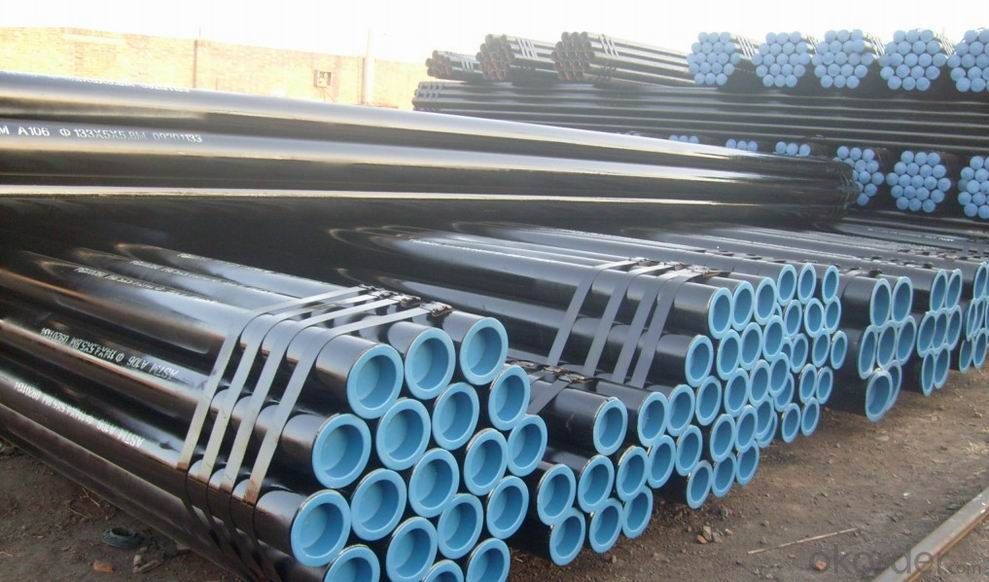
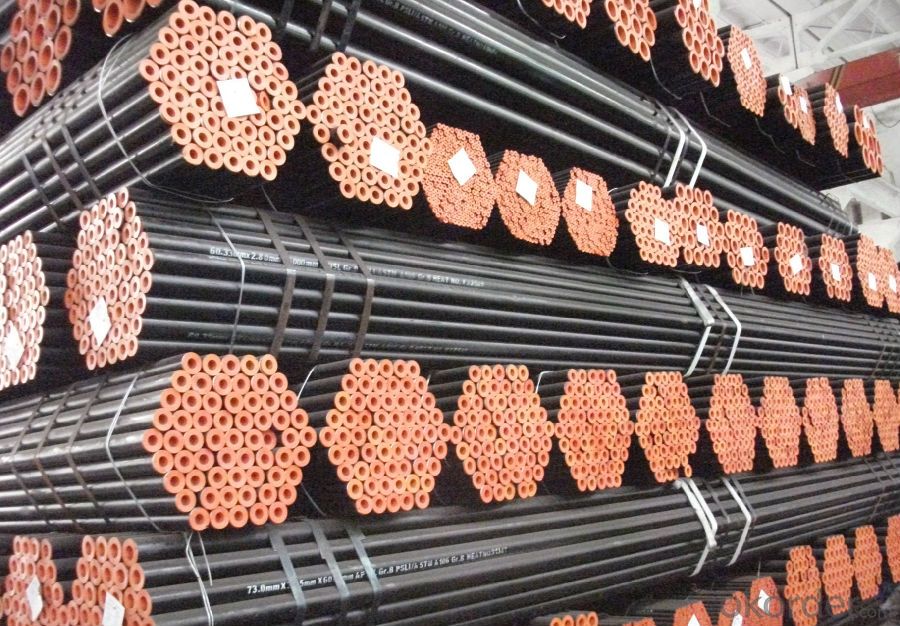
Packaging & Delivery
| Packaging Details: | seaworthy package,bundles wrapped with strong steel strip |
| Delivery Detail: | 15-30days after received 30%TT |
4、Seamless Pipe ASTM A106/53 Specification:
| Standard | GB, DIN, ASTM
ASTM A106-2006, ASTM A53-2007
|
| Grade | 10#-45#, 16Mn
10#, 20#, 45#, 16Mn
|
| Thickness | 8 - 33 mm
|
| Section Shape | Round
|
| Outer Diameter | 133 - 219 mm
|
| Place of Origin | Shandong, China (Mainland)
|
| Secondary Or Not | Non-secondary
|
| Application | Hydraulic Pipe
|
| Technique | Cold Drawn
|
Certification
| API
|
| Surface Treatment | factory state or painted black
|
| Special Pipe | API Pipe
|
| Alloy Or Not | Non-alloy
|
| Length | 5-12M
|
| Outer Diameter | 21.3-610mm
|
Grade
| 20#, 45#, Q345, API J55, API K55, API L80, API N80, API P110, A53B
|
| Standard | ASME, ASTM |
1.Material:20#(ASTM A 106/A53 GRB.API5LGRB,GB),45#,16Mn,10#.
2.Specification range:OD:21.3-610mm,WT:6-70mm,length:6-12m or according to the requirement of clients.
3.Excutive standards:GB,ASME API5L.ASTM A 106/A53,Despite of the above standards,we can also supply seamless steel pipe with standard of DIN,JIS,and so on,and also develop new products according to the requirements of our clients!
4.Surface:black lacquered,varnish coating or galvanized.
5.Ends:Beveled or square cut,plastic capped,painted.
6.Packing:bundles wrapped with strong steel strip,seaworthy packing.
5、FAQ of Seamless Pipe ASTM A106/53:
①How is the quality of your products?
Our products are manufactured strictly according to national and internaional standard, and we take a test
on every pipe before delivered out. If you want see our quality certifications and all kinds of testing report, please just ask us for it.
Guaranteed: If products’ quality don’t accord to discription as we give or the promise before you place order, we promise 100% refund.
②How about price?
Yes, we are factory and be able to give you lowest price below market one, and we have a policy that “ for saving time and absolutely honest business attitude, we quote as lowest as possible for any customer, and discount can be given according to quantity”,if you like bargain and factory price is not low enough as you think, just don’t waste your time.Please trust the quotation we would give you, it is professional one.
③Why should you chose us?
Chose happens because of quality, then price, We can give you both.Additionally, we can also offer professional products inquiry, products knowledge train(for agents), smooth goods delivery, exellent customer solution proposals.Our service formula: good quality+good price+good service=customer’s trust
SGS test is available, customer inspection before shipping is welcome, third party inspection is no problem.
Any question, pls feel free to contact us !
